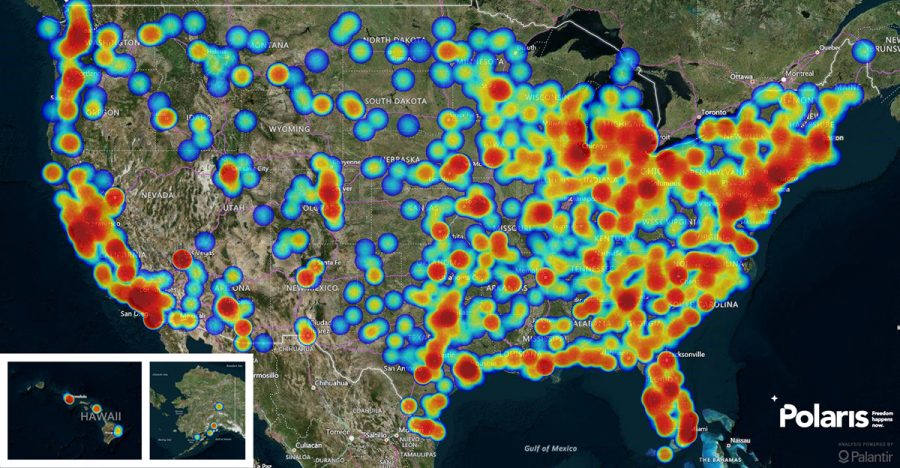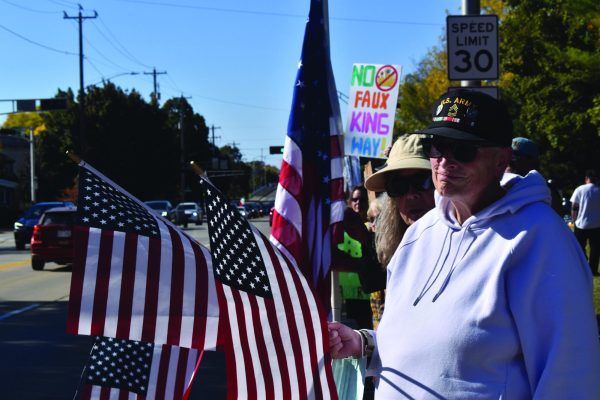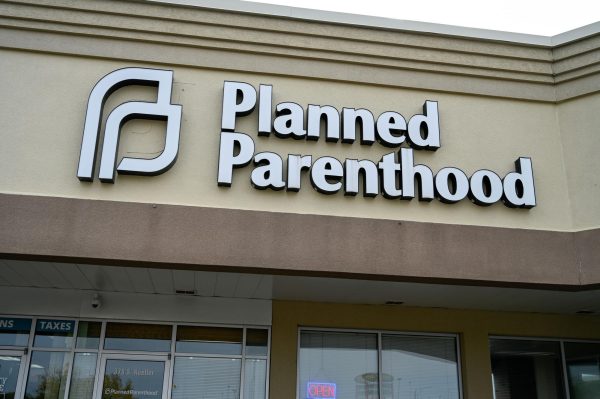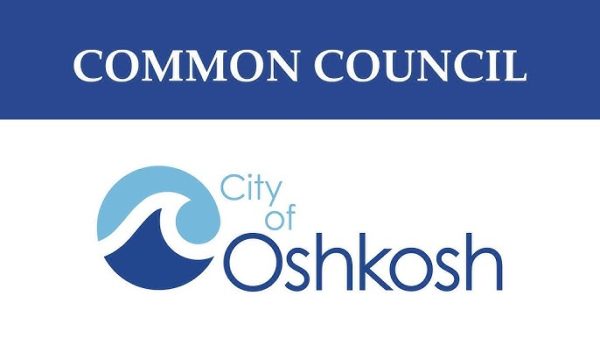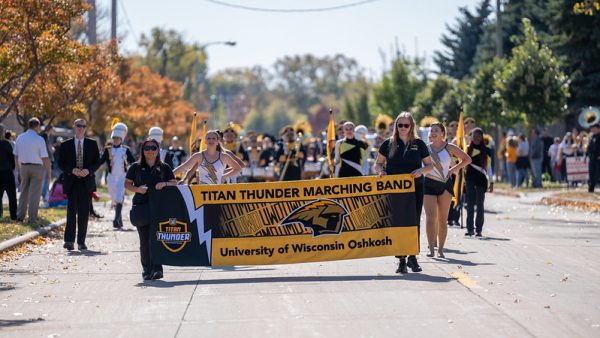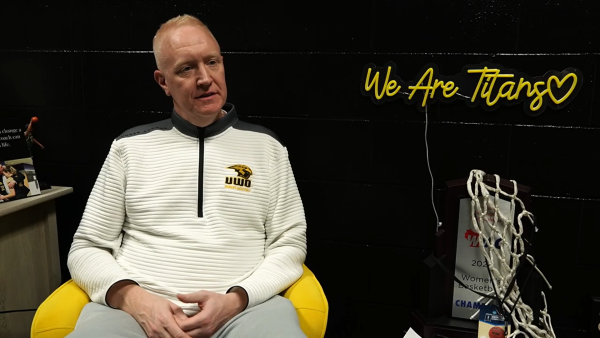Women’s Center intern exposes hidden crime
Human trafficking in the area was examined at a presentation on Monday, which presented victims from Oshkosh and Appleton and the truth about I-41 and I-94
Data collected from 2017 is displayed in a heat map, which signifies human trafficking incidents reported to the National Human Trafficking Hotline and BeFree textline. According to statistics from the national hotline, there were 10,615 individual victims in 2017.
Amelia Gonzales, an intern at the UW Oshkosh Women’s Center, presented “Exposing the Hidden Crime of Human Trafficking” on Monday, with goals to raise awareness about human trafficking and to encourage students to spread the message.
Gonzales said in 2018 alone, there were 64 reported cases of human trafficking in Wisconsin, and she believes the majority were in the Fox Valley area.
“They also reported that sex trafficking has been documented in all 72 counties in Wisconsin,” Gonzales said. “So even the places that you don’t think it happens, it happens.”
Gonzales said she doesn’t have specific statistics for Fox Valley because it is a hidden crime.
“The reason why there’s little to no statistics out there is because it’s not being reported or the number is so small they don’t feel like they need to report it,” Gonzales said.
Gonzales said what surprised her the most is that in the U.S. alone, it’s a $32 billion dollar per year industry and of those transactions, about 70% take place online.
“It’s not now more person-to-person, it’s online, which makes it all the more difficult to track down and makes it all the more difficult to find,” Gonzales said.
Gonzales said people oftentimes believe that trafficking happens in the East or West Coast, so she presented a heat map that reveals where trafficking has happened in the United States at her presentation.
“You’re going to see that, yes, majority of them are on the east coast and on the West Coast, but a lot of it is in the Midwest,” Gonzales said. “So where we are, Illinois, Wisconsin, even places that you don’t think trafficking could happen, like Alaska, there’s huge pods of it.”
Gonzales said she focused on two cases, one about a 17-year-old Oshkosh male who was abducted and taken to Eau Claire to be trafficked and another about a 14-year-old Appleton female who was abducted in Grand Chute and trafficked along the highway.
“So the 17-year-old met an individual online, went out on a date with him, then got involved in trafficking, was brought to Eau Claire and was trafficked there for I believe a week, and then he was found and then brought back to Oshkosh,” Gonzales said.
Gonzales said the 14-year-old girl met the pimp — or a man who controls prostitutes and arranges clients for them and takes money in return — in Grand Chute, was trafficked along I-41 and was even brought to Minnesota. According to a Post-Crescent article, the victim reported seeing 18 men in a 24-hour period.
“[The girl] also kind of talked about … how she got addicted to drugs and that’s how her pimp controlled her and how if she didn’t do what her pimp said, she would be beaten for not listening or not even making a profit on the money she made,” Gonzales said.
Gonzales said I-94 is a central area for trafficking.
“I always say, now that I’ve done the research on I-94, I don’t look at that highway the same,” Gonzales said. “Like I look every time I pass a motel because there’s also these motels here and there every time I drive, every time I see a motel it’s just like, what’s happening there?”
Co-director of Social Transformation to End Exploitation in Trafficking for Sex Jean Geran spoke about her UW-Madison initiative at the event. Geran said the mission of STREETS is to contribute to the end of human trafficking through education and action research.
“We work locally here in Wisconsin and globally with partners in Asia, Africa, Latin America and Europe to share experiences and bridge the gap between research and better practice,” Geran said.
Geran said survivor voices are critical to understanding the problem and how to confront it and support those affected.
“It takes creative collaboration to provide safe spaces for survivors to share their own diverse views with researchers and practitioners working on the challenge of human trafficking,” Geran said. “STREETS has provided such a space for fruitful collaboration and that is our proudest accomplishment.”
Gonzales said it’s important for people to continue the conversation and to call the national hotline if they see something happen.
“Even if you’re just reporting it, you’re starting a conversation, and that helps the national hotline because some politicians use that data to talk about what we need to do better in this country and better yet what can we do better in this state to ensure that these numbers that we keep getting, we can get that number back to zero,” Gonzales said.
Gonzales said she thinks, unfortunately, human trafficking will always happen and that traffickers will always find a loophole.
“Even if you can just catch that one case and you can help that one person, I think that’ll make the impact that will send a message to the other traffickers and the other pimps,” Gonzales said. “Like ‘Hey, we don’t want this in our city, we don’t want this in our state.’”


